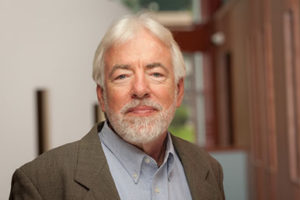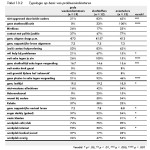Trump’s Vision For A “Golden Age Of America”: Oligarchy Plus Ultranationalism
 01-23-2025 ~ Parallels between European fascism in the 1930s and Trump’s MAGA vision were on full display this week.
01-23-2025 ~ Parallels between European fascism in the 1930s and Trump’s MAGA vision were on full display this week.
Donald Trump’s inauguration as the 47th president of the United States put on display fascism’s 21st-century iteration — a combination of oligarchic power and ultranationalism unlike anything in recent memory.
It was a shameful spectacle for a country that deems itself to be the world’s greatest democracy and the leader of the so-called free world. Trump was flanked by billionaire tech moguls and far right leaders from Italy, Germany, Argentina, France, the U.K., and other countries around the globe. His inauguration speech promised a “golden age of America” by making the country “greater, stronger, and far more exceptional than ever before.”
It was an inauguration speech dripping with authoritarianism and jingoism in which Trump cast himself as the savior of the country. “Our sovereignty will be reclaimed. Our safety will be restored. The scales of justice will be rebalanced,” he said, and described the leadership of the past four years as incompetent and corrupt, without specifying Joe Biden or other Democrats by name.
The speech left little doubt about its ideological character. Indeed, the political message behind Trump’s return to the White House was best captured by Elon Musk’s Nazi-like salute during the inauguration celebrations (though, in this case, predictably, the Anti-Defamation League rushed immediately to Musk’s defense by downplaying the significance of the gesture). The South African billionaire has appointed himself as leader of the West’s far right movement and has been fomenting fascism since he helped Trump win reelection. For Musk and his ilk, who expect to be the biggest beneficiaries of the new administration’s much anticipated anti-regulation blitz, Trump’s return to office promises a new “Golden Age” of U.S. world dominance and prosperity for the super-rich. Read more
How Archaeologists Can Solve The Earth’s ‘Wicked Problems’
 01-18-2025 ~ We used to have “balloon” debates in school: The hot-air balloon is losing height and, to avoid disaster, people must be jettisoned. To avoid this fate, everybody must justify why they should remain on board and their classmates then vote them “on” or “off.”
01-18-2025 ~ We used to have “balloon” debates in school: The hot-air balloon is losing height and, to avoid disaster, people must be jettisoned. To avoid this fate, everybody must justify why they should remain on board and their classmates then vote them “on” or “off.”
In reality, the result was determined entirely by one’s popularity. But perhaps this is always the case. In seeking to avoid funding cuts, for example, museums or cultural services are often considered easy targets, since archaeologists and heritage professionals are far less useful than doctors, engineers, or mathematicians. Beyond archaeology itself, cultural heritage has few friends, one might argue.
But I present the argument that far from being the irrelevant or outdated subject some politicians, career advisers, and university leaders might consider it to be, archaeology is essential to the future of humanity and planetary health. This is for three main reasons. First, archaeologists have the capacity to think about and to understand humanity of the past, and to project that insight into the future. Second, archaeologists are uniquely placed to comprehend the many and complex ways in which humans, over time, have related to their environment and environmental and other processes, such as the changing climate, migration, or pandemics. And third, archaeology provides opportunities for everyone to benefit, whether in terms of physical (by undertaking surveys or excavations) or mental health (through social interaction or artifact handling, to address loneliness or anxiety, for example). Read more
United States In 2025: Social Problems Denied Via Rhetorics Of Refusal

Richard D. Wolff
01-17-2025 ~ Societies survive and grow when they successfully navigate their contradictions. Eventually, however, accumulating contradictions overwhelm existing means of navigating them. Then social problems arise that persist or worsen inside such societies because they are unsuccessfully navigated or go unattended. Sometimes, the dominant conscious reaction to such social problems is denial, a refusal to see them. Denial of internal social problems displaces navigating the contradictions that cause them. The resulting social decline, like the set of internal contradictions it reflects, is denied and ignored. Instead, narratives or rhetorics can arise that position such societies as victims of abuse by foreigners. The United States in 2025 illustrates this process: its rhetorics of refusal aim to end its victimization.
In today’s United States, one such rhetoric refuses to allow continued abuse by foreigners “threatening our national security.” This rhetoric blames bad U.S. political leadership for its failure to put America first and thereby make it great again. Another rhetoric demands that “we” refuse to allow “our democracy” to be destroyed by foreign enemies (and their domestic equivalents): people who are said to hate, not understand, or undervalue “our democracy.” Still another rhetoric of refusal sees foreigners “cheating” the United States in trade and migration processes. Most Americans embrace one or more of such rhetorics. Yet, as we propose to show here, such rhetorics are ever less effective.
One reactionary rhetoric, Trump’s, gestures toward former greatness by literally renewing American imperialism. He threatens to retake the Panama Canal, change Canada into the 51st of the United States, conquer Greenland from Denmark, and possibly invade Mexico. All those foreigners are said to threaten national security or else “cheat” the United States. Trump’s typical bloviating aside, this is remarkable expansionism. Such repeated colonialist gestures feed broader notions of making America greater again. Read more
The Possibility Of A War Against Iran
 01-16-2025 ~In early January, most of the major military forces of Iran participated in a large military exercise called Payambar-e Azam (Great Prophet), which started as an annual exercise 19 years ago. These forces included the Islamic Revolutionary Guard Corps (IRGC) and the Basij Resistance Force, and took place in the air, on land, and in the sea. The exercises began in Iran’s western Kermanshah province, with the Mirza Kuchak Khan Brigade in the lead. Mirza Kuchak Khan (1880-1921) successfully led the Jangal (forest) Uprising in northern Iran in 1918 against the British and counter-revolutionary Tsarist forces. Then, after a triumph, he created the short-lived Socialist Republic of Gilan in June 1920 (which was eventually overthrown by the Shah’s forces in September 1921). That a brigade of forces in the Islamic Republic is named after this socialist warrior is interesting by itself, but not germane to the fact that these Special Forces are now playing a leading role in what appears to be military exercises for the defense of the Iranian state against a possible attack.
01-16-2025 ~In early January, most of the major military forces of Iran participated in a large military exercise called Payambar-e Azam (Great Prophet), which started as an annual exercise 19 years ago. These forces included the Islamic Revolutionary Guard Corps (IRGC) and the Basij Resistance Force, and took place in the air, on land, and in the sea. The exercises began in Iran’s western Kermanshah province, with the Mirza Kuchak Khan Brigade in the lead. Mirza Kuchak Khan (1880-1921) successfully led the Jangal (forest) Uprising in northern Iran in 1918 against the British and counter-revolutionary Tsarist forces. Then, after a triumph, he created the short-lived Socialist Republic of Gilan in June 1920 (which was eventually overthrown by the Shah’s forces in September 1921). That a brigade of forces in the Islamic Republic is named after this socialist warrior is interesting by itself, but not germane to the fact that these Special Forces are now playing a leading role in what appears to be military exercises for the defense of the Iranian state against a possible attack.
The military exercises began on January 3, 2025, which is the fifth-year anniversary of the assassination by the United States of General Qasem Soleimani, the leader of the IRGC’s Quds Force. The Quds Force is responsible for Iranian military operations outside the boundaries of the country, including building what is called the ‘Axis of Resistance.’ The latter includes various pro-Iranian governments and non-governmental military forces (such as Hezbollah in Lebanon). Soleimani’s assassination was the start of a determined new political and military campaign by the United States, Israel, and their European allies to undermine Iran’s role in West Asia. Punctual strikes by Israel and the United States on Iranian logistical bases in Syria and Iraq weakened Iran’s force posture. Israel’s regular assassinations of IRGC military officers both in Syria and in Iran itself have also had an impact on the leadership of the Iranian military forces. Israel’s assassination of the Hezbollah leader Hassan Nasrallah on September 27, 2024, and the Israeli and U.S.-assisted overthrow of the government of Bashar al-Assad in Syria on December 8, 2024, dented Iran’s strength across the Levant region (from the Turkish border to the Occupied Palestinian Territory) as well as along the plains from southern Syria to the Iranian border. Hezbollah’s new Secretary-General Naim Qassem admitted, “Hezbollah has lost its military supply route through Syria.” Read more
The Colonizer’s Mask Has Slipped To The Floor
 01-15-2025 ~ A decade ago, on a road north of Bamako, Mali, the jeep I was driving in had to pull off the road to permit a French military convoy to pass. The convoy was on its way to the main airfield used by the French air force as a part of Operation Serval (2013–2014). It was a long, dusty wait as the trucks went along the road, struggling a little in the mud that had begun to claim the roadway. I waved to some soldiers, just to be polite, but got a firm look from them. I could only imagine what they were thinking, so far from home, so confused about their mandate.
01-15-2025 ~ A decade ago, on a road north of Bamako, Mali, the jeep I was driving in had to pull off the road to permit a French military convoy to pass. The convoy was on its way to the main airfield used by the French air force as a part of Operation Serval (2013–2014). It was a long, dusty wait as the trucks went along the road, struggling a little in the mud that had begun to claim the roadway. I waved to some soldiers, just to be polite, but got a firm look from them. I could only imagine what they were thinking, so far from home, so confused about their mandate.
Something about the situation made me think of the cartoon Beau Peep, about a British man who joined the French Foreign Legion that was deployed in northern Africa so that he could escape from his wife Doris. In fact, the character that I remembered was Beau Peep’s commanding officer, Colonel Escargot, who believed that while stuck in the Sahara Desert he was in a conflict with “those warmongers of Switzerland” (January 1986). There was something about Brigadier General Bernard Barrera, who commanded Operation Serval, that reminded me of Colonel Escargot: “What are we doing here,” he seemed to say when he came out in public.
When the convoy had gone by, my friends in the jeep said, “Let’s see how long they last.” It was a worthwhile comment. When there is no good reason for an occupying force to be in a foreign environment, they often depart more silently than they arrive. Besides, troops from the Global North no longer wanted to operate in African and Asian countries when they were not protected by immunity agreements. For instance, the United States military had insisted on a Status-of-Forces agreement with the Iraqi parliament, and when the Iraqis decided not to renew that in 2011, U.S. forces began to leave the country (many remain in a backroom deal). Already, rumors had begun to slip in from northern Mali that French aircraft had struck and killed civilians. When will Les Toubab (the Europeans) leave?
It was in Bamako a decade ago that I first heard the phrase—“France dégage” or “France, Get Out”—in reference to the intervention of French troops. Anyone who was following the situation of the French intervention knew that France had caused the very problem that it had now come to solve: the French-engineered attack by the North Atlantic Treaty Organization (NATO) on Libya in 2011 had provided air cover for jihadi groups, who then made a dash for Algeria and northern Mali. The problem had been caused by La mêre patrie, as France is often ironically called, the motherland. Even if this claim that France is to blame is often inflated, in this case, it was accurate. Read more
There’s Much To Say About Economics Of War, But Most Economists Won’t Address It

James K. Boyce – Photo by Matthew Cavanaugh
01-14-2025 ~ Traditional economics virtually ignores war, even though economic triggers directly contribute to conflicts.
“Economic policies have profound effects on the tensions within and between countries — tensions that can lead to war,” renowned progressive economist James K. Boyce remarked to me recently, adding that economics is in part “about plunder … and plunder sometimes morphs into war.”
Given that economic triggers clearly contribute to conflicts, why is war a topic largely neglected by the economics profession?
In the interview that follows, Boyce explains why war is ignored by most economists; dissects the link between economics and war, and more specifically capitalism’s relationship to war and conflict; and discusses the role that economics can play in peacebuilding.
James K. Boyce is professor emeritus of economics and senior fellow of the Political Economy Research Institute at the University of Massachusetts Amherst. He is the author of Investing in Peace: Aid and Conditionality after Civil Wars and editor of Peace and the Public Purse: Economic Policies for Postwar Statebuilding and Economic Policy for Building Peace: The Lessons of El Salvador. He received the 2024 Global Inequality Research Award and the 2017 Leontief Prize for Advancing the Frontiers of Economic Thought. This interview is based on his seven-part video series released by the Institute for New Economic Thinking in October 2024. Read more


